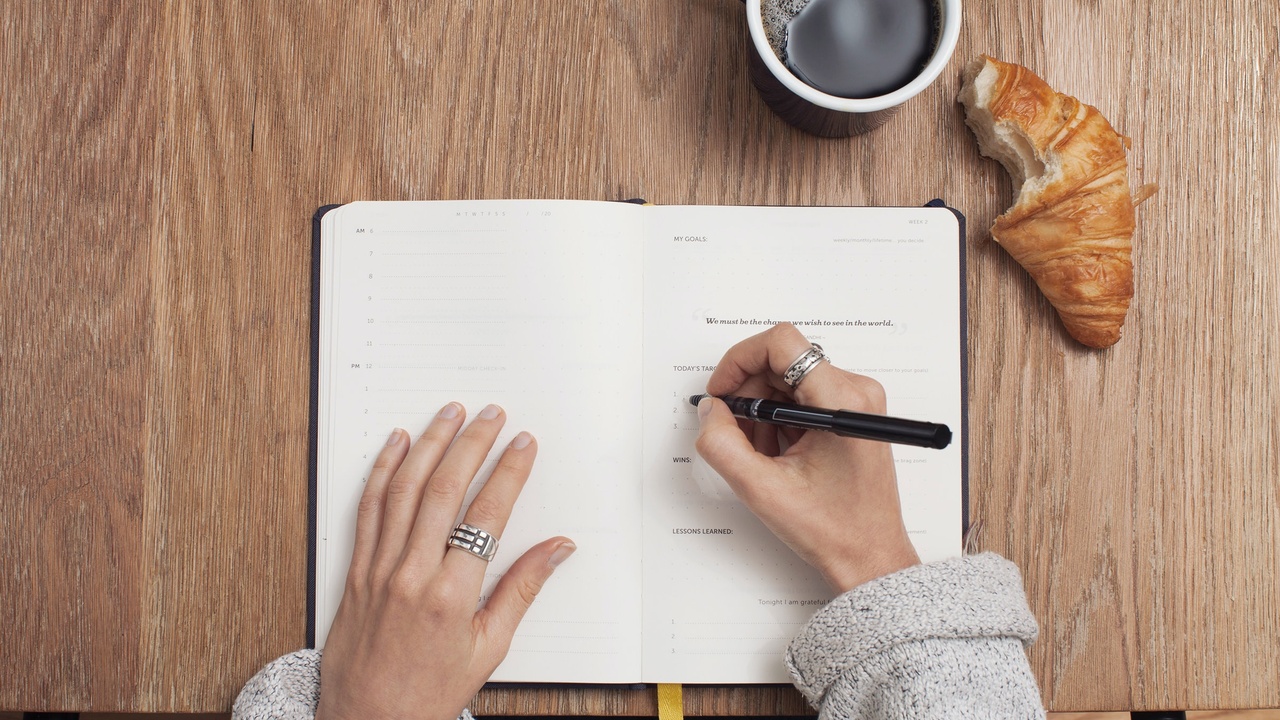Small Actions Lead to Big Results

by Erik Peterson
Have you ever found yourself procrastinating on a creative project, or struggling to initiate a desired change in your life?
I know I have, too many times to count. Through learning about different strategies for personal change, along with many failures and successes, there is one approach and mindset that I return to again and again. It’s the power of small actions and small habits. It can be used to enhance everything in your life from your approach to your art, to health-related goals, to developing stronger relationships.
Our Failed Approach to Creating Change
B.J. Fogg, a Stanford professor, behavior change expert, and author of Tiny Habits, encourages us to completely reframe our approach to change. Our culture celebrates heroic change all at once, requiring superhuman strength. It’s embedded in the thousands of New Year’s resolutions to workout for an hour every single day of the week, no excuses! But what often happens? A desired change is abandoned a week or two weeks in, after some kind of disruption or inevitable drop in motivation when the inspirational high has worn off and it starts feeling like work. Can you relate?
The solution to our propensity to bite off way more than we can chew (and the ensuing frustration), is to begin using a small action, small habit approach. One tiny change that B.J. often recommends to people is the “floss one tooth” habit. After I found myself neglecting my flossing routine, I realized I needed to re-implement this strategy. So one day, I gave myself full permission to “just floss one tooth.” It sounds silly, but what do you know, I actually flossed all my teeth, something I had “wanted” to do in my head for some time but in reality had nothing to show for.
Every day since then, I’ve been just flossing ‘one’ tooth, and have gone strong for the past 25 days or so. It’s too easy not to do, and that’s the whole point. It would actually take more effort to come up with excuses in my head than to do this utterly small action! Stephen Guise, author of Mini Habits and Elastic Habits, calls making your action or habit “stupid small.” Meaning, when you have identified an action that feels so ridiculously small, then you have found the right action.
When you begin taking small actions, you might be surprised at what you start accomplishing that went undone before. You might begin to see how seemingly overwhelming tasks are now getting done, one by one, through your small actions. What once was a laborious overthought process was really just a simple solution waiting to be discovered.
One Small Step Can Change Your Life
Dr. Robert Maurer is another behavior change expert who has championed the use of small actions in his private practice with individuals, as well as his consulting work with corporate leaders and teams. In his book, One Small Step Can Change Your Life, he relates a powerful story of one his clients seeking to make a health change.
“I once met a woman who wished to exercise and had even bought an expensive treadmill for her home. She still found herself avoiding exercise. I just can’t bring myself to do it, she thought. So she turned to kaizen. For the first month, she stood on the treadmill, read her newspaper, and sipped her coffee. For the next month, after finishing her coffee, she walked on the treadmill for one minute, increasing by a minute each week. During these early months, her small actions would have struck most people as ridiculous. But they weren’t really. She was developing a tolerance for exercise. Soon her “ridiculous” small actions had grown into the firm habit of running one mile each day! Note that this gradual buildup to a steady program is the exact opposite of the usual pattern, in which a person starts off with a burst of activity for a few weeks, but then returns to a comfortable spot on the couch.”
That is the power of small actions.
——————
There is a spiritual truth embedded in this process of small actions as well. In my opinion, it is one of the tangible ways that grace expresses itself through our lives. It is the grace of imperfection, simple acts, and of being willing to try a different approach that may just work...
How to Use Small Actions to Create Big Results in Your Art and Life
-
Give yourself permission to begin using smaller steps to kickstart or sustain a goal or project. For instance, “just pick up the paintbrush.” Your brain might rebel at first, but keep at it, keep giving yourself permission each day.
-
Start becoming aware of the small steps you take through your day that lead to positive results. Especially take note of where small actions lead to big payoffs.
-
Keep track of your tiny habit(s) on a piece of paper or in your phone. See how long of a streak you can create without missing a day.
-
After each small step you take, celebrate! Each small action you do is important in and of itself, while also containing the potential to create big change.
That's it. Start seeing your day through the lens of "what small action can I take?" Keep it simple, keep it small, experiment, play and have fun finding what works best for you.
Have you found this approach helpful in your art and life? I'd love to hear your stories of success.




